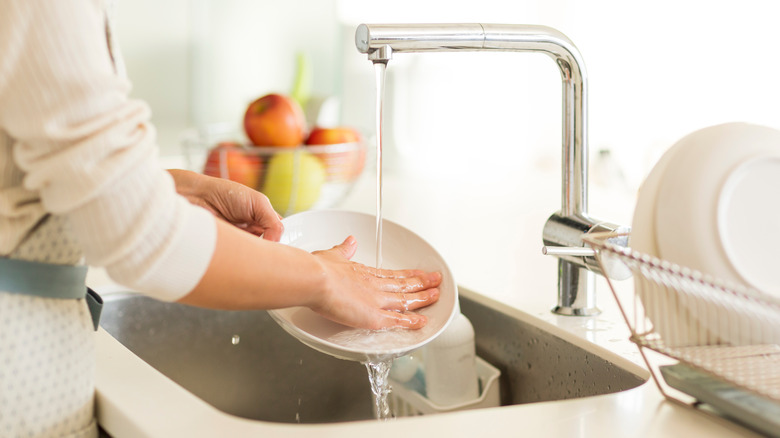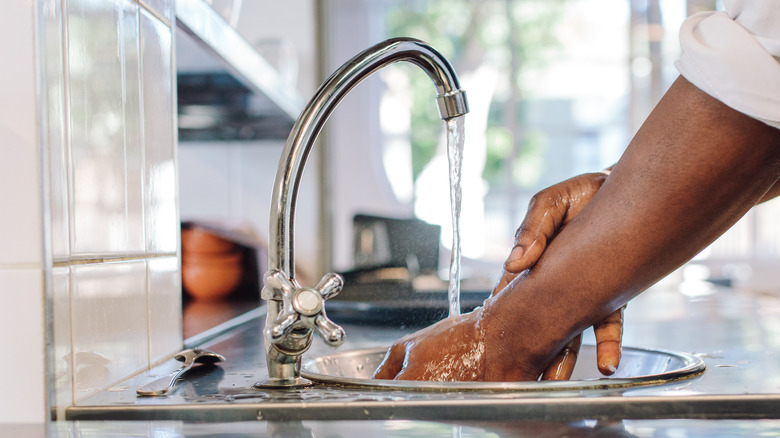Do You Need To Wash Your Hands After Washing The Dishes?
Oh, the luxury of a dishwasher! For those without this appliance, however, our hands become the dishwasher.
Washing our hands is important in our day-to-day lives. The U.S. Centers for Disease Control and Prevention (CDC) says that handwashing is our top defense against the spread of germ-related illness. From the bottoms of your elbows to the tips of your fingers, as many as 10 million bacteria can be found living on the surface of our skin (via Tri-County Health Care). When short on time, a quick rinse under the sink might sound better than nothing, but soap is crucial to effectively rid our hands of contaminants. Because we touch so many surfaces throughout the day, the CDC emphasizes the importance of thoroughly lathering and washing hands for a full 20 seconds.
Because dishwashing already requires warm water and soap, it sounds like handwashing is automatically covered, right? Is it really necessary to wash our hands after doing the dishes?
Our hands spread more germs when wet
According to experts at Tri-County Health Care, our hands are more susceptible to the spread of germs when wet. Wet hands and dishwashing go hand-in-hand. When unwashed, the germs on our hands can spread to other surfaces, as well as food and drink items we may be handling (via CDC).
For this reason, health experts encourage handwashing both before and after washing the dishes. This is because we touch a lot of other surfaces during the washing process, including sponges and soap pumps — both of which are ripe environments for bacteria to thrive (via Reader's Digest). Through a series of studies, University of Arizona researchers determined that as much as 320,000,000 bacteria can reside in our everyday sponge, including those responsible for infections such as Salmonella (via American Society For Microbiology).
Handwashing is also particularly important if you're washing your dishes in the same sink you use for cooking. The CDC suggests frequent handwashing throughout the food preparation process, including before, during, and after cooking. Germs can spread from food items, such as raw meat, and can make their way to your hands after handling. To prevent the transfer of harmful bacteria to our hands and dishes, washing your hands before and after dishwashing is key.


